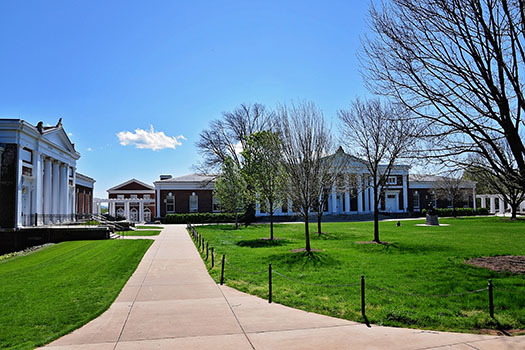University of Virginia Combats COVID-19 Outbreak
The University of Virginia reported 121 new cases of COVID-19 on Monday, Feb. 15, and 229 new cases on Tuesday, Feb. 16. Both of these days set new records for the number of positive cases reported on campus in a single day. The numbers from Tuesday also represent about 10% of the total number of new cases reported in the entire Commonwealth of Virginia for that day.
On Tuesday afternoon, the university announced a new set of health and safety regulations that took effect that evening and are set to last through at least Friday, Feb. 26. The new policies were announced via a campus-wide email from University President Jim Ryan, Executive Vice President for Health Affairs Dr. K. Craig Kent, Provost Liz Magill, and COO J.J. Davis.

In-person classes are still slated to continue. The university banned all in-person gatherings, including casual socializing and campus club and organization meetings. Students both on and off campus are also highly encouraged to remain in their residences except for “essential activities.” Given examples of essential activities include attending in-person classes, going to work on or off campus, eating or picking up meals from campus dining halls, solitary exercise like running or walking, picking up mail, and attending to medical issues like getting a symptomatic COVID-19 test or receiving other medical care.
Campus recreational facilities and libraries will close for the duration, with libraries still offering contactless pick-up services. Dining facilities and other on-campus eateries will remain open. For staff and student employees who are either unable to work remotely or whose places of employment are temporarily closed, their employment status and pay will not be affected.
“If conditions improve as we expect, we will lift these restrictions and return to the plan with which we started the semester,” the email said. “In the event we continue to see a rise in cases, we will be forced to consider additional measures, including moving all undergraduate classes online and considering the same for graduate and professional schools.”
The University of Virginia is also starting to see cases of the B.1.1.7 variant (colloquially known as the U.K. variant) of the coronavirus. However, the message from university officials assured students that “[o]ur in-house analysis indicates that this spread is not directly related to variants but instead to transmission of the original strain of the virus, which can occur when individuals are not closely following health and safety protocols.”
The email concluded by urging students to take the new restrictions seriously, calling the following 10-day period “crunch time.” It reminded students that what’s at stake is not only the logistics of the current semester, but also the health and safety of the entire University of Virginia community.
About the Author
Matt Jones is senior editor of Spaces4Learning. He can be reached at [email protected].